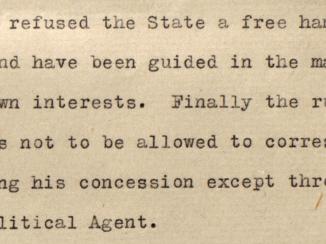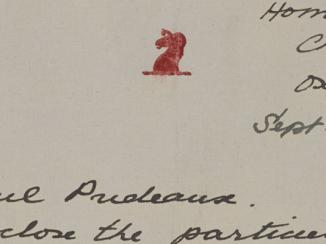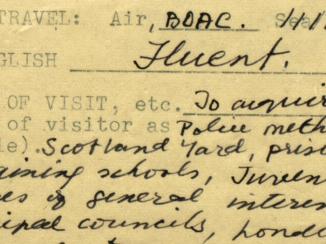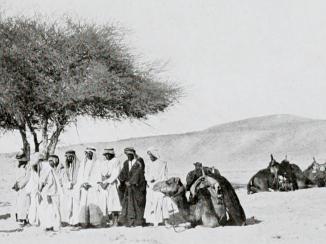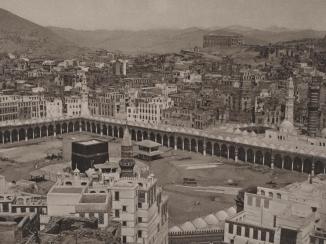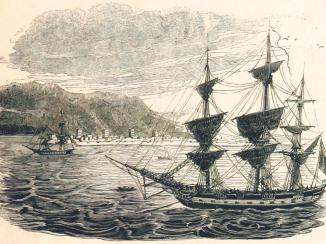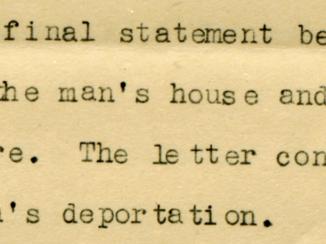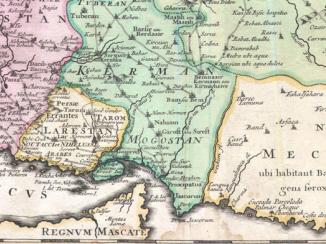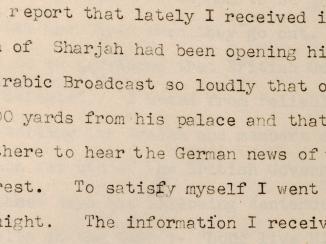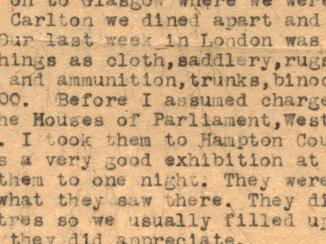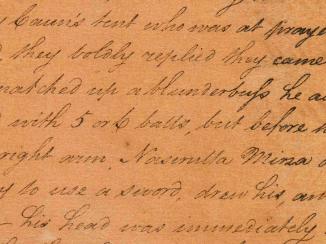Overview
An unassuming financial file that forms part of the India Office The department of the British Government to which the Government of India reported between 1858 and 1947. The successor to the Court of Directors. Records contains an unexpected example of British, Arabic-language propaganda. Remarkably, two rare posters produced by the British Government during World War II were preserved in the file because financial accounts of the Bahraini government were typed on their reverse. It appears that the posters were used by the British Political Agency An office of the East India Company and, later, of the British Raj, headed by an agent. in Bahrain in place of ordinary paper due to a shortage in supplies caused by World War II.
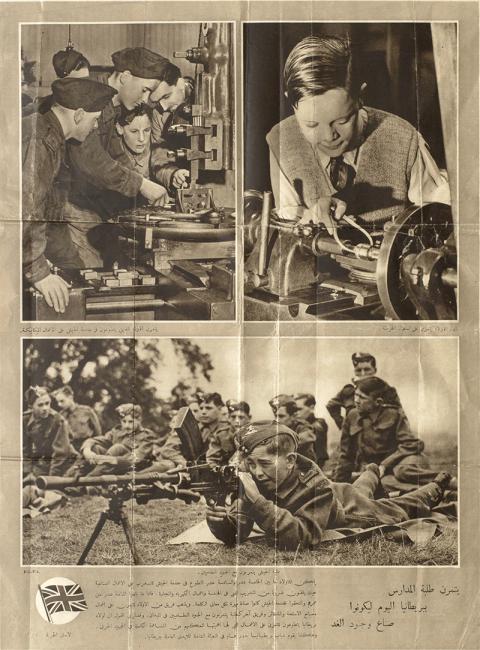
An Apparently Progressive Image of Britain
The accounts on the posters’ reverse are for the hijri calendar years 1362 and 1363 (c. 1943) but the posters themselves are not dated. However, given that one of them depicts a children’s mock parliament discussing the post-blitz re-planning of London, it appears that they were produced sometime after May 1941, when the blitz ended, and thus are roughly contemporaneous with the financial accounts printed on their reverse.
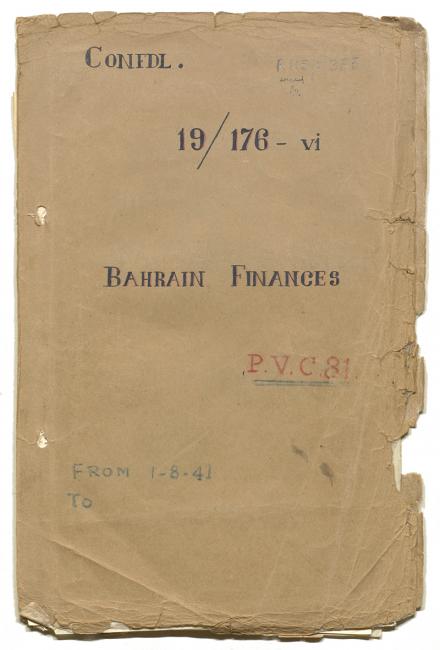
Both posters seek to promote a strong, progressive image of Britain and stress the involvement of school children (of both sexes) in British society and in shaping the future of the country. By depicting children involved in a mock parliament, one of the posters alludes not only to Britain’s actual parliament – in contrast with Germany’s dictatorial system – but also to the supposedly inclusive nature of a modern Britain that involved young people in broader issues related to society.
‘The Builders and Soldiers of Tomorrow’
The other poster presents a more overtly militaristic image of British youth and has the tag line ‘Students of British Schools Practice Today to be the Builders and Soldiers of Tomorrow’. The poster has a large image of a boy in British Army uniform firing a Bren Machine Gun. Its text discusses military service for youth in the country.
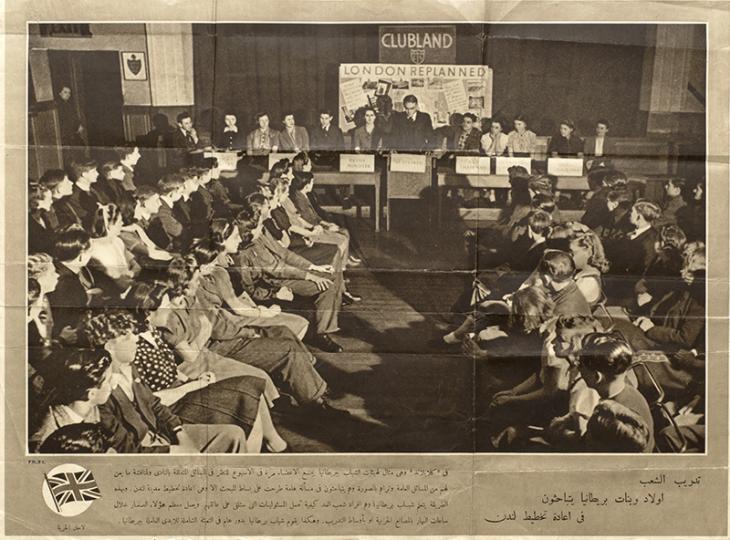
On both of the posters, the slogan ‘For the Sake of Freedom’ appears below a picture of the Union Jack flag. The use of this slogan is ironic given that, at the time, Britain was a global imperial power whose political representative in Bahrain openly acknowledged that the British ‘refused the state a free hand’. Indeed, many of the individuals targeted by these Arabic-language posters were living under the imperial domination of the British.
Britain’s Control over Bahrain
This was especially true in the case of Bahrain. Although the country was never formally a part of the British Empire, a series of treaties agreed between the British Government and the Al Khalifa family in the nineteenth century had given Britain control over Bahrain’s foreign relations, incorporating the country into the British Imperial system.
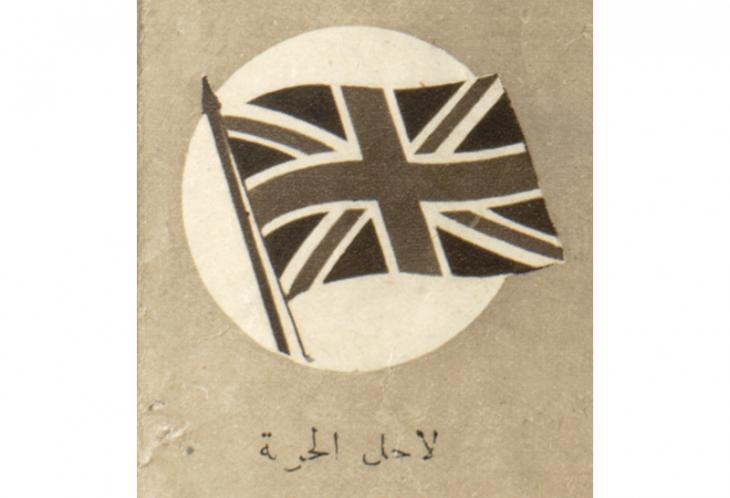
During World War II, the Middle East was the site of a propaganda struggle between Great Britain and its allies, as well as between Nazi Germany and the other axis powers. Propaganda produced by the German Government – in some cases radio broadcasts in Arabic – found a receptive ear in some areas of the Gulf. Printed materials, such as these posters, were produced by the British in an effort to counter such German propaganda.






